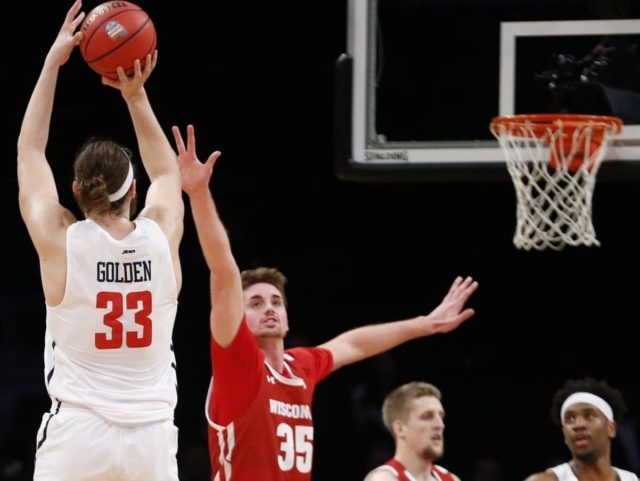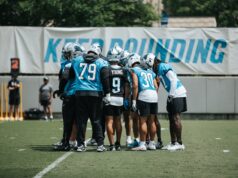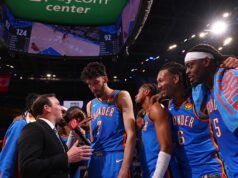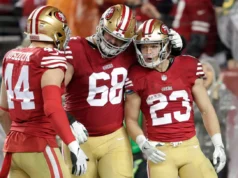NEW YORK — Wisconsin is probably kicking themselves to death. The Badgers could have won the game if it wasn’t for the sloppy play and missing wide-open shots.
Wisconsin lost 62-52 to Richmond in a Legends Classic semifinal on Monday night was due to their 15 turnovers. It was very uncharacteristic because taking care of the ball is one of its core principles.
The Badgers still had the turnover bug carried over from the Richmond game but were able to knot the game up at 11 with 11:24 remaining the first half following a 5-0 Lobos run.
Aleem Ford and Nate Reuvers carried the offensive load for the Badgers with the high-low game during the first 12 minutes.
Wisconsin in the first half shot (10-26) 38.5 percent from the floor and (3-15) 20 percent from downtown. Kobe King and Reuvers had the post-game working to keep them afloat.
The Badgers was like a gift shop four turnovers in its first 10 possessions. Wisconsin had 10 turnovers in 30 possessions by the break and finished the contest with 15 altogether. Even with their turnovers and shooting woes, New Mexico had a 29-20 lead going into halftime.
One word that came up from UW coach Greg Gard and his players after both games was “uncharacteristic.” Problem is, that may not be an accurate term to describe the situation.
The sample size is still relatively small, but it’s big enough to spot a disturbing trend. The Badgers (4-3) have finished in single digits in turnovers in only one of their seven games this season and they’ve averaged 14.3 in their three defeats.
UW has more turnovers (88) than assists (82) this season. That second number would be higher if the Badgers would have knocked down some shots in Brooklyn, where they went a ghastly 9 of 53 (17.0 percent) from 3-point range after missing 24 of their 26 attempts against New Mexico.
But while the bad shooting is inexplicable, the careless miscues are inexcusable.
“I thought we played too fast at times,” coach Greg Gard said after the New Mexico game. “We got sped up, a few travels that are uncharacteristic of us that we’ve got to get cleaned up. But we’ve got to continue to reduce the number of turnovers.”
The Badgers have turned the ball over on 18.9 percent of their possessions this season. That would be the program’s worst mark since UW finished with 31 wins in 2007-08 — sweeping the Big Ten regular-season and tournament titles — despite a turnover rate of 19.0 percent.
If the Badgers have any aspirations of going dancing in March they will have to find a way to be consistent on the offensive side of the ball. UW likes to stand around and wait for the defense to break down. They have to find more creative ways to score points.
“I think some of the guys, we think too much instead of just playing and the coaches try to harp on that,” UW junior point guard D’Mitrik Trice said. “Just continue to play and not think so much. I think that’s what will propel us in the future.”
The Badgers need to play games more fundamentally sound and play smarter before it costs them more games and season.
“I thought Trevor gave us some really good minutes,” Gard said. “I thought he played how a point guard should play. He’s still doing it on one leg and that’s probably more evident defensively. But I thought he increased the pace, I thought we moved the ball better when he was in there. He was attacking, he was finding guys.
Up next:
Wisconsin will be on the road again next week heading to North Carolina State on Wednesday night as part of the B1G/ACC Challenge.






